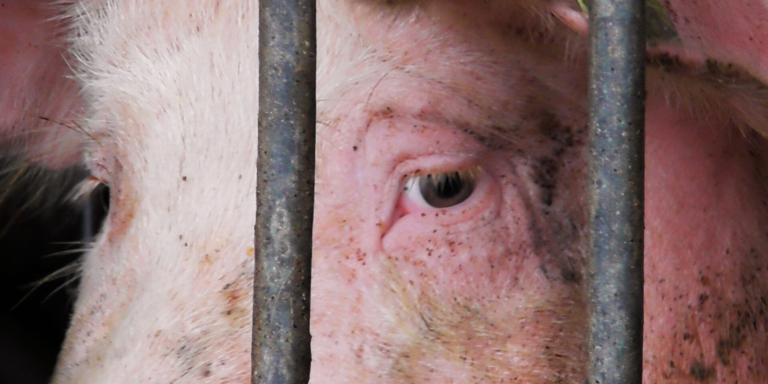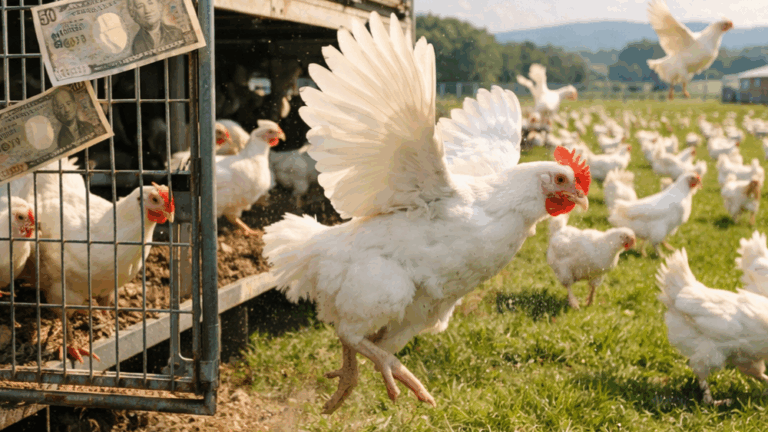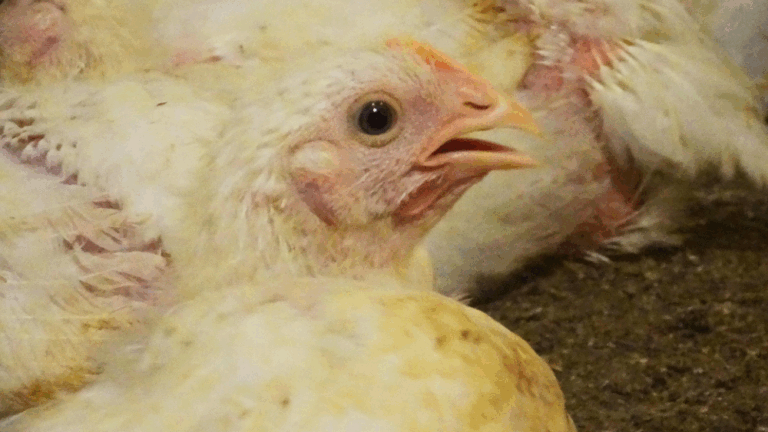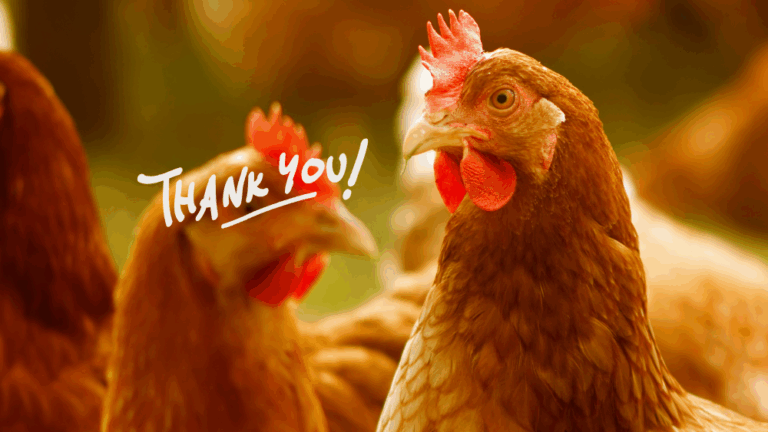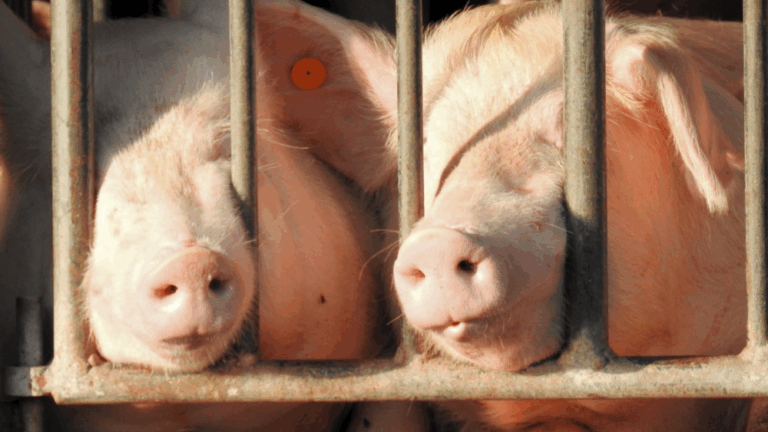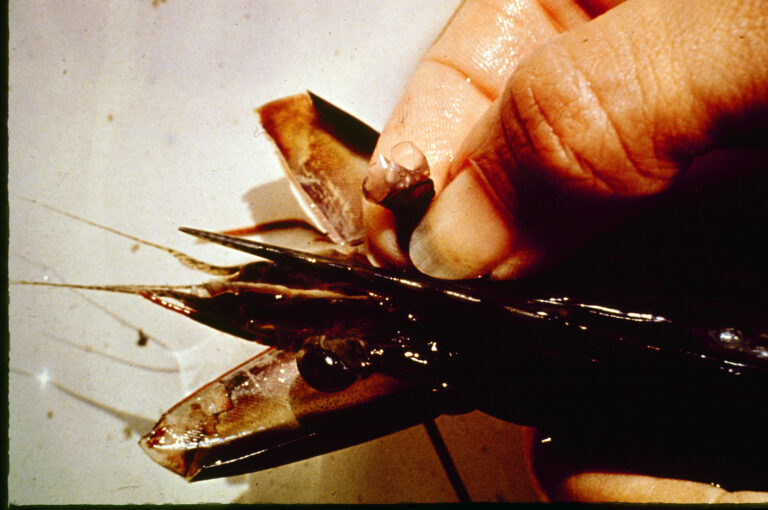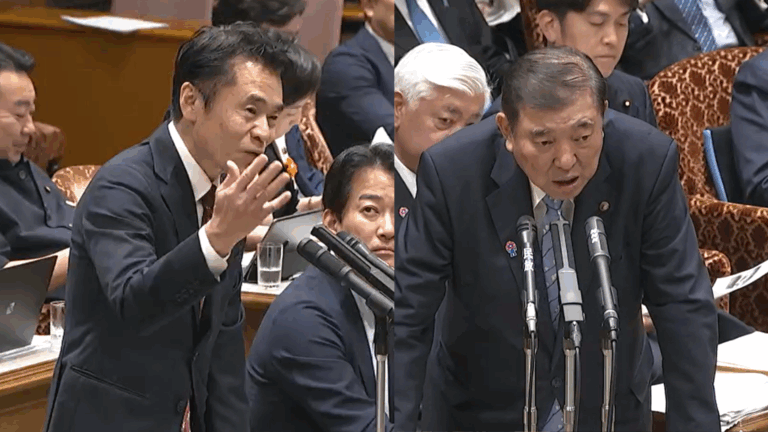In 2013, the Animal Rights Center signed a petition calling for the abolition of gestation stalls at five major Japanese meat companies: Nippon Ham, Prima Meat Packers, Itoham Foods, Starzen, and Marudai Food, and submitted the signatures collected that year. Ten years have elapsed since then, and all five companies have clarified their stance on the abolition of gestation stalls.
Prima Meat Packers was the first company to make its position clear, stating in 2020 that it would not construct any new piggeries using gestation stalls in the future. Then, in November 2021, Nippon Ham announced that it would transition all gestation stalls on its domestic farms to herd rearing by 2030. This announcement by Nippon Ham to set a deadline for the transition has been highly praised, including by consumer groups.
Later in 2022, Starzen announced that it would designate animal welfare as one of its material priorities and phase out gestation stalls in its pig farms. Additionally, Itoham Yonekyu Holdings announced that it would eliminate the gestation stall system when building or renovating its pregnant pig barns.
And this month, Marudai Food added a page to its website on animal welfare and announced that it would ‘consider eliminating gestation stalls for mother pigs when constructing or renovating facilities and equipment.’
As of now, four companies, apart from Nippon Ham, have not announced when they will complete the transition from gestation stalls. It is essential to specify a target transition date. Without such a date, it will be challenging for companies seeking to procure pork from these businesses to ensure animal welfare compliance.
However, there is no doubt that much has changed compared to 10 years ago when not a single company in Japan endorsed the abolition of gestation stalls. The practice of confining pigs has evolved into a breeding method that is now widely rejected in Japan.
Animal Welfare of Imported Pork
Many of us living in Japan are likely familiar with the names of these five companies. However, each company differs in size, characteristics, and business focus. While Nippon Ham manages everything from production to distribution internally, Marudai Shokuhin primarily focuses on the procurement and distribution of pork. Therefore, when Marudai Foods discusses animal welfare, it is crucial to address the welfare of the pork it procures.
The following information is available on the website:
The Marudai Foods Group procures raw materials (pork, etc.), from various supply chains, both domestic and international. We source livestock (pork, etc.) , that has been raised in compliance with the laws and regulations of the respective countries. The majority of our suppliers are selected from countries and providers that either implement or align with the principles of animal welfare, which include the transition to group rearing of sows
Although somewhat ambiguous, it is evident that one purchasing criterion involves the transition to gestation stall-free.
Japan’s General Pig Farms Being Left Behind
The shift away from confinement breeding represents a clear stance for major meat companies. However, this change is applicable only to their own pig farms or those under contract. It is the pig farms not owned by these large, publicly traded companies that are being left behind. Naturally, small, family-owned hog farms will also be left behind; among the 3,590 hog farms in Japan, we are aware of only a handful of general hog farms considering the transition to gestation stall-free practices.
What is required is a change in the awareness and behavior of all food-related companies, stores, and individuals.
In Europe, the U.S., and Brazil, many major meat companies are aiming to transition to gestation stall-free practices by 2025. It has been announced that 50% of the pork from China that Tyson Foods purchases is already gestation stall-free, indicating significant progress. In fact, large pig farms are becoming gestation stall-free. In Japan, by 2030, pork from these countries is expected to dominate the market, and gestation stall-free pork will likely become commonplace, including at Nippon Ham, the largest pork producer in Japan. There are still six and a half years until 2030. To facilitate the transition to gestation stall-free pork, every food-related company and store that purchases pork needs to declare their commitment to sourcing only gestation stall-free pork by 2030, even among the nearly 3000 domestic general pig farms, to ensure their transition.


